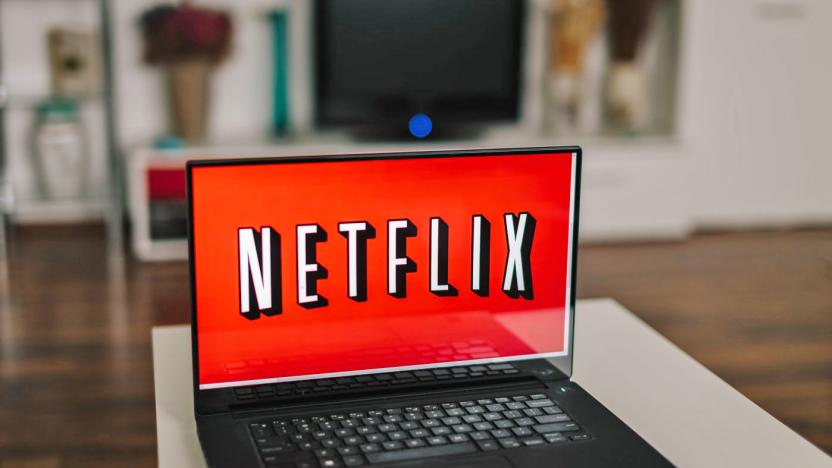DSM
Latest

EU wants Netflix to offer 20 percent European content
The European Union is updating its broadcasting laws to cover online services like Amazon and Netflix. As part of the move, the union is looking to prevent these firms just leeching money out of the 28 member states without putting something back. That's why the new rules mandate that 20 percent of each company's content library needs to be European in origin. Rumors of the ruling prompted fears that on-demand businesses would have to pay millions for obscure content that nobody wanted. But it turns out that Netflix is already doing more than the bare minimum to promote European film and TV.

Addiction experts: Video games aren't an addiction
Apparently the doctors from the American Medical Association (AMA) who were looking to have video game addiction classified as a disease have backed away from their decision. They now recommend the American Psychiatric Association, who would have had the final word on the matter anyway, consider doing more research into the issue and possibly add the diagnosis to their revision of the DSM (Diagnostic and Statistical Manual of Mental Disorders) in 2012. The AMA doctors who believe video game addiction exists say it affects approximately 10% of players, but say more study is needed.."There is nothing here to suggest that this is a complex physiological disease state akin to alcoholism or other substance abuse disorders, and it doesn't get to have the word addiction attached to it," said Dr. Stuart Gitlow of the American Society of Addiction Medicine and Mt. Sinai School of Medicine in New York. But Dr. Thomas Allen of the Osler Medical Center says, "Working with this problem is no different than working with alcoholic patients. The same denial, the same rationalization, the same inability to give it up." But is that addiction, compulsion or just playing really bad games? That's the question.Dr. Louis Kraus who deals in child and adolescent psychiatry says it's not such cause-and-effect issue. He says certain kids just have a more "compulsive component" in what they do. Kinda sounds like the same argument about kids who play video games and kill. The AMA will make its final recommendation on the issue later this week.

AMA voting on legitimacy of video game addiction
The American Medical Association will decide later this month whether "Internet/video game addiction" will be added to the Bible of crazy: The DSM (Diagnostic and Statistical Manual of Mental Disorders). The proposal comes in a 10-page document prepared by the AMA's Council on Science suggesting that video game addiction is similar to the pattern of behavior observed in pathological gambling.Now remember, they aren't saying that all video game players are addicts. They're merely saying that video game addiction, like gambling addiction, does affect some members of the gaming population and they need help. The armchair psychologist might say that if you know well enough to eat, sleep, go to work/school, kiss your significant other and/or children goodnight, chances are you aren't an addict. Then again, you could just be in denial. After the AMA votes on the matter, it'll still be up to the American Psychiatric Association to decide whether it goes in the DSM. So, for those who think people dying in front of their computers playing games are crazy, this decision by the AMA at the end of the month would put that on the record.

DSM to kick copper speeds up to 100 Mbps
While everyone's getting all excited by that FiOS, fiber-to-the-home, fiber-in-the-home or even Google's alleged DWDM -- there's another futuristic bandwidth project currently afoot, the Dynamic Spectrum Management. The advantage of DSM -- which aims to replace DSL if its creators have their way -- is to use current copper wiring to create 100Mbps service in the home by futzing with the way that signals and packets are processed and transferred. Naturally, if DSM turns out to work, it would likely be a much cheaper alternative to digging trenches for fiber in the ground. In any case, this requires a fair amount of cooperation between those telecom firms who control the pipes, and so today, a group of tech and telecom companies (including the Israeli firm ECI Telecom and the Spanish giant Telefonica), have joined forces to try to work out all of DSM's kinks. The consortium announced that it will receive €8 million ($10 million) in grant money over the next three years from the Chief Scientist Office of Israel. [Via Reuters]

